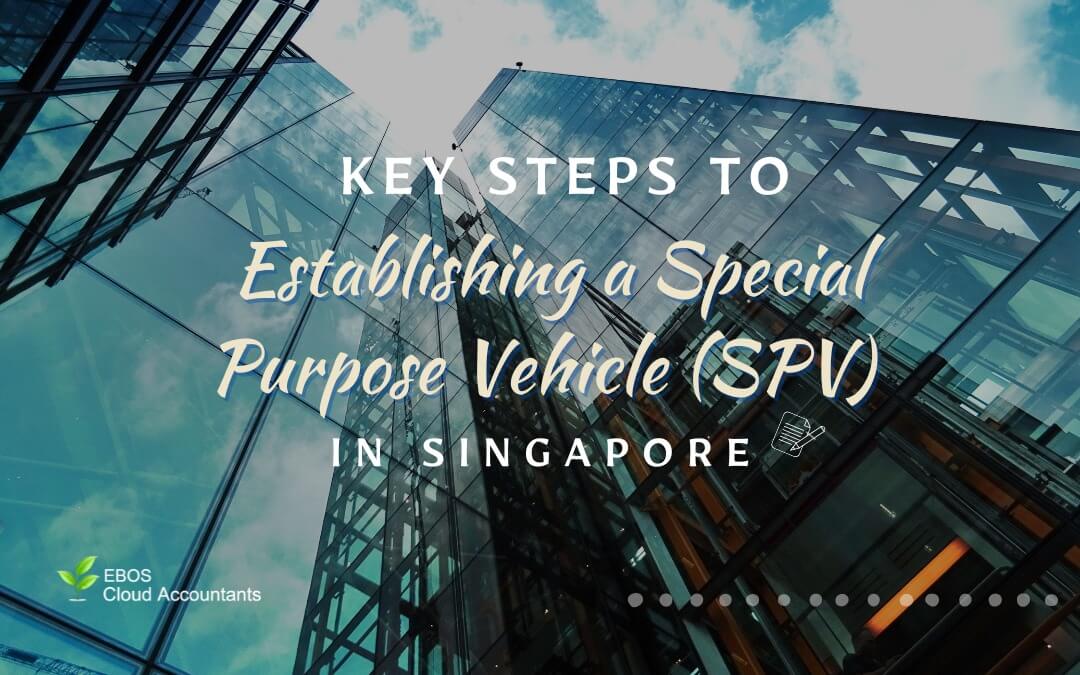The Special Purpose Vehicle (SPV), also referred to as a Special Purpose Entity (SPE), is a method of corporate structuring that enables a company to manage risk or segregate it to get funding and accomplish other crucial business goals. Making a distinct legal organization that may be utilized to execute a specific project or accomplish a certain business goal is frequently involved in the establishment of a Special Purpose Vehicle firm in Singapore.
SPV Benefits
Start-up businesses, investors, and others frequently employ SPVs in Singapore. You may see a more detailed explanation of the benefits received by these parties below.
Start-up companies
Financing Arrangement
- It may be time-consuming and even stressful for a company to respond to each new shareholder’s questions about how the business operates if it raises capital by allowing them to buy shares.
- By enabling it to work with only one new investor (the SPV business), as opposed to numerous ones, an SPV can assist the company in avoiding this. Money from the investors is invested in the SPV, which subsequently invests in the startup.
Investors
Risk Management
By creating an SPV, businesses or individuals can legally separate and distribute the risks of an investment among other parties. An SPV with management that has industry experience may make many angel investors feel more comfortable.
Asset Transfers
The transfer of some assets could be time- and labour-intensive. By creating an SPV that buys an entity’s assets and sells the whole thing, assets can be transferred.
Real Estate Acquisition
A business may create an SPV to own the properties for sale if property sales taxes exceed Singapore capital gains. They will be able to sell the investment vehicle they currently have instead of the properties and pay capital gains tax as opposed to real estate sales tax.
Others
Securitization By Insurance Companies And Banks
SPVs are typically created by insurance and financial organizations because they make it easier for securitized assets to operate. For instance, a bank might want to offer mortgage-backed securities whose payments come from a collection of loans.
However, these loans must be legally separated from the bank’s other obligations to guarantee that the owner of mortgage-backed securities has first-priority access to loan payments.
By creating an SPV and moving bank loans into it, this is accomplished.
Evading Regulations
There are times when creating SPVs can get around onerous constraints. By creating an SPV in the proper nation, for instance, it is frequently possible to sidestep law that mandates that owners of particular assets be registered or based in certain jurisdictions.
Incorporate an SPV in Singapore
Steps for the incorporation of an SPV
· Construct A Suitable Business Structure
You must first understand why you want to build the SPV. It will determine the necessary business structure.
Your SPV could, for instance, be a holding company that owns numerous businesses that want to merge, a subsidiary company controlled by the parent firm for fundraising, etc.
· SPV Incorporation
After choosing a company structure, you can create one or more SPVs as necessary for that structure. In Singapore, an SPV is frequently set up as a Private Limited Company, a legal structure in which the liability of shareholders is constrained by the price of their shares.
A minimum of one and a maximum of fifty shareholders, who may be local or foreign corporations as well as natural people, may own your SPV, which is organized as a business.
· Company Constitution
As part of the SPV’s formation process, you must create a unique company constitution. It’s possible that the default constitution provided by the Accounting and Corporate Regulatory Authority (ACRA) has to be updated and may not be a perfect fit.
The constitution of an SPV should outline the business structure in which the SPV is involved, the SPV’s functions, and its specific aims in addition to the standard rules contained in the constitutions of Private Limited Companies.
Objects will probably be chosen after discussion with all interested parties and will be related to the transaction strategy.
The object clause of an SPV generally explains the precise purposes and roles of the SPV within the business structure, in contrast to the object clause of a regular company, which typically identifies the type of activity the firm intends to carry out as well as the goal of receiving and distributing earnings.
In addition, if such a business is established for a particular project and a short length of time, the company constitution should reflect this operational duration and provide the appropriate winding-up procedure.
SPVs Taxed in Singapore
If your SPV is set up as a corporation, its taxable income will be taxed at a rate of 17%, subject to the tax incentives offered to eligible corporations.
The Goods and Services Tax (GST) is one of the special tax rules that Singapore Special Purpose Vehicles must abide by. Eligible SPVs are exempt from GST in particular situations. For instance, SPVs of Real Estate Investment Trusts (S-REITs) registered on the Singapore Exchange (SGX) are permitted to claim a GST exemption for business expenses.
SPV may be required to pay stamp duties for the execution of specific documents relating to properties and shares.
Conclusion
SPVs can be helpful management instruments for your assets and liabilities. You should, however, think about the legal ramifications of using an SPV in Singapore and make sure that all yearly criteria are satisfied.
Kindly contact us at ebos-sg.com if you are unable to find the answers to your queries in this article. We will reply to you as soon as possible.







